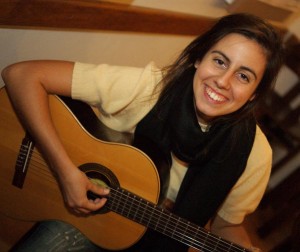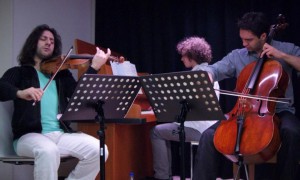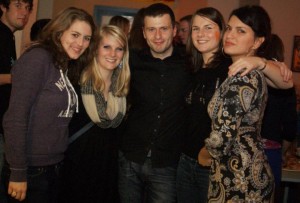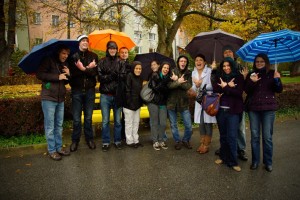What does Europe sound like apart from the political debates about debts and power? Isn’t there something that created a deeper connection and understanding among different nations, a part of culture we all share? And what role did and does music still play in the process of European integration?
The event Music – Connecting People organized by AEGEE-Passau in cooperation with the  music festival Young Classic Europe gathered people from all over Europe to deal with all these questions.
music festival Young Classic Europe gathered people from all over Europe to deal with all these questions.
The European Union was first founded as an economic community but as Jean Monnet, one of the founding fathers of the European Union, already indicated, it is above all a cultural community.
“If I could seize a fresh opportunity for the political integration of Europe, I would start from culture and not from the economy”, he said, illustrating what is the most important premise for successful European integration. Mutual understanding, exchange, awareness about a common past and a culture we all share are the foundations for a deeper integration and they make Europe come alive.
Music is a language that everyone can understand and that does not have to be translated. Today the unifying power of music is a topic that is addressed in many concerts, festivals and conferences where people from different nations are brought together to create and enjoy music.
 Also during the event in Passau we were all able to experience this power. We sang, we danced and we went to a classical concert together, and even though we only spent one weekend together we could feel a great atmosphere and a special connection between the participants.
Also during the event in Passau we were all able to experience this power. We sang, we danced and we went to a classical concert together, and even though we only spent one weekend together we could feel a great atmosphere and a special connection between the participants.
Having a look at the European history, we realised that the European roots lie way further back in the past. The engagement with the similarities and differences of music in Europe started long before the idea of political and economic integration in Europe was even born.
Already thousands of years ago, the Gregorian musicology existed as a common European style of music that stretched across Europe. Moreover, in the following centuries many composers were famous beyond the national borders and the coexistence of different cultures sometimes even created a completely new style of music.
One of our workshops for example was about ancient music in Andalusia, a combination between Christian, Arabic and Jewish music. Professional trainers taught us a lot and in the end our participants were able to play one of these songs themselves.
 A cultural simulation game aimed to raise awareness about cultural differences. In groups, the participants made up their own cultural norms, composed a hymn and managed to overcome cultural borders by cooperating with other groups.
A cultural simulation game aimed to raise awareness about cultural differences. In groups, the participants made up their own cultural norms, composed a hymn and managed to overcome cultural borders by cooperating with other groups.
All in all, we had a great weekend, we learned a lot about music and intercultural communication and experienced a great atmosphere within the group of our participants. After this event my answer to whether music can really connect people and different cultures would definitely be yes.
Written by Veronika Hönes, AEGEE-Passau


